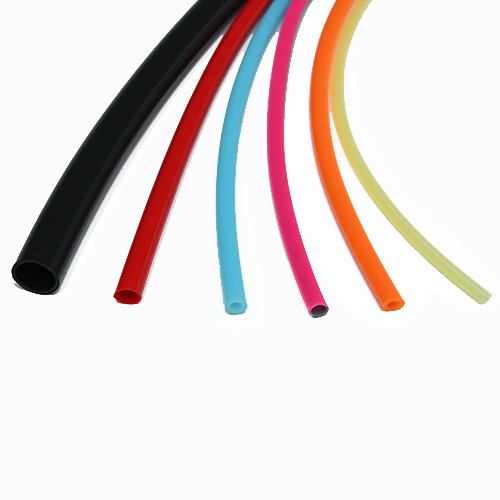Silicone Rubber Tubing, a tubing product made of high-quality, high-temperature-resistant silicone rubber, is favored by many industries for its outstanding performance and wide range of applications. In this article, we will demonstrate the practical applications of silicone rubber tubing in different industries and how it can help to solve various challenges through several specific cases.

Case 1: Insulation protection in the power industry
In the power industry, the safe operation of electrical equipment and lines is of paramount importance. Because of the high temperatures generated during the operation of electrical equipment, a piping material that can withstand high temperatures and provide good insulation is needed to protect the lines, and Silicone Rubber Tubing meets this need.
An electric utility company used Silicone Rubber Tubing to insulate the wiring of critical electrical equipment. Silicone Rubber Tubing maintains stable insulation properties at high temperatures, preventing safety hazards caused by overheating of electrical wiring. At the same time, Silicone Rubber Tubing's flexibility and resistance to arcing and corona also improve the safety and reliability of the lines.
Case 2: Corrosion-resistant piping in the chemical industry
In the chemical industry, the transportation of liquids and gases needs to face the corrosive effects of various chemicals. Silicone Rubber Tubing has become the ideal choice for the chemical industry because of its excellent corrosion resistance.
A chemical company uses Silicone Rubber Tubing as a conveying pipe in its production line. The material is resistant to a wide range of chemicals and ensures the stable operation of the production line. At the same time, Silicone Rubber Tubing's high-temperature resistance also enables it to work properly in high-temperature environments, improving production efficiency.
Case 3: Infusion tubing in the medical industry
In the medical industry, the safety and reliability of infusion tubing is directly related to the life and health of patients, Silicone Rubber Tubing has become the preferred material for medical infusion tubing due to its non-toxic, odorless and biocompatible characteristics.
A hospital has adopted Silicone Rubber Tubing as its infusion line. This piping material not only meets the hygiene standards of the medical industry, but also effectively reduces bacterial growth during infusion, ensuring patient safety. At the same time, the softness and durability of Silicone Rubber Tubing improves patient comfort and reduces medical errors.
Case 4: Connecting pipes in the food industry
In the food industry, the requirements for connection piping are equally strict. Silicone Rubber Tubing is widely used in the food industry because of its excellent food safety and high temperature resistance, and because it needs to be safe and hygienic, as well as being able to withstand temperature changes and chemical attack.
A food manufacturer has chosen to use Silicone Rubber Tubing as a connecting pipe in its production line. The tubing material not only complies with food safety standards, but also withstands temperature changes and chemicals that may occur during the production process. At the same time, its excellent elasticity and flexibility also make it easier to install and maintain the pipes.
Through the sharing of the above cases, we can see the wide range of applications and excellent performance of Silicone Rubber Tubing in many industries such as electric power, chemical, medical and food. With its characteristics of high temperature resistance, insulation, corrosion resistance, non-toxic and odorless, it has solved the challenges encountered in the use of piping in various industries and provided a strong guarantee for the safe production and efficient operation of various industries.
With the continuous progress of science and technology and the continuous development of the industry, we believe that Silicone Rubber Tubing will continue to play its important role in the future, bringing more convenience and benefits to more areas.




